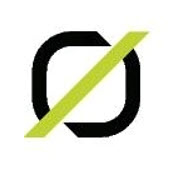Proving "Airline-approved" Sherpa 100PD is approved
I am attempting to have proof that the Sherpa 100PD is approved to be carried onboard a plane.
other than the words "airline-approved" in the description, I have not seen any documentation to prove it and/or any documentation I might have to show a TSA representative that the Sherpa can indeed be carried onboard.
I hate the idea of investing in a Sherpa 100PD only to be stopped at TSA minutes before a flight and not allowed to bring it on my trip.
I would appreciate any links or articles or any documentation on GoalZero site assuage my concerns.
Thanks in advance!
Comments
-
Hi @Aimless
On both the Sherpa 100PD and 100AC there is an airplane logo on the back of the power bank. That logo should work as an identifier for TSA. Thank you.
-
Awesome! Thanks for the tip. Still curious of any documentation related to the process, but the logo gives me more confidence
-
Not sure if you’ve traveled with it but I’ve taken my 100AC on many domestic and international flights! Never so much as a question from TSA or anyone else about it, good luck!
-
I believe the TSA issue is that without prior special arrangement with the airline, the TSA doesn't allow Lithium batteries above 100 Wh (Watt hours) to be carried on. Lithium batteries in general are not allowed in checked luggage. The rule can be found at https://www.tsa.gov/travel/security-screening/whatcanibring/items/lithium-batteries-more-100-watt-hours
Both the Sherpa 100PD and the Sherpa 100AC have 94.7Wh batteries, so they are below this limit. Therefore the TSA should not have an issue with them.
However, airlines may impose rules that are stricter than those imposed by the TSA. For instance an airline may refuse a carryon bag due to weight, even though that bag is acceptable to the TSA.
The fact that something is OK with the TSA is not a guarantee that it will be OK with a particular airline. However, I would expect that when it comes to batteries, the airlines will generally follow the TSA's 100Wh limit.
-
That makes sense, although I’m not sure how an airline would know you had it if there wasn’t an issue with TSA. I guess they could ask you at the gate, etc. Hard to imagine it based on my own experience but I will admit to focusing most of my air-travel on a few airlines. Perhaps a question on Reddit or something could get a larger survey of experiences.

